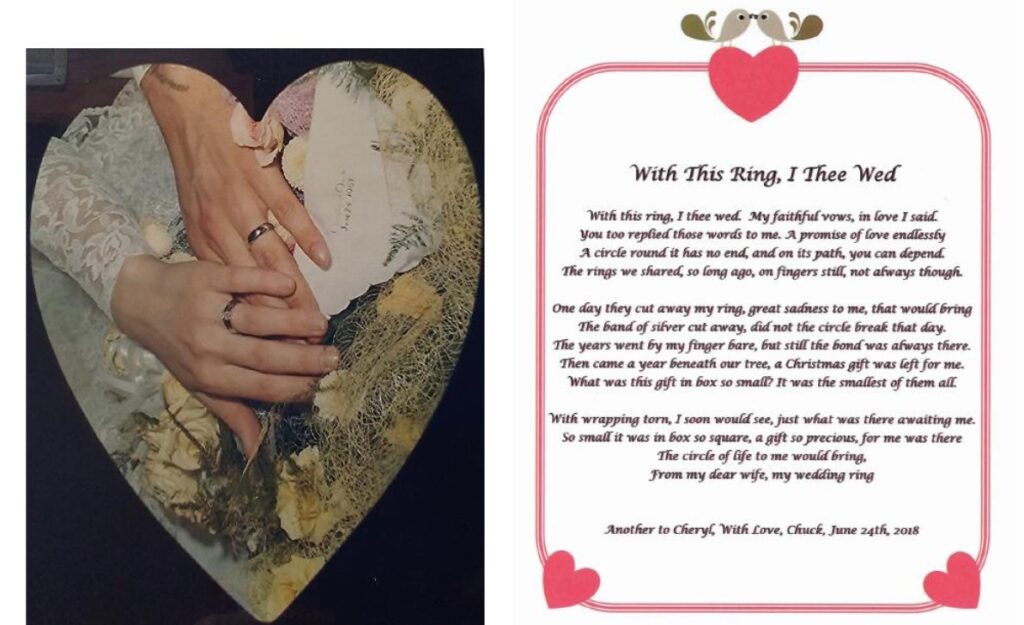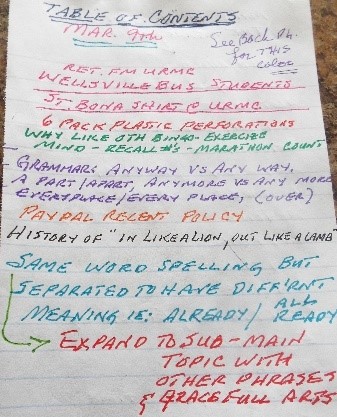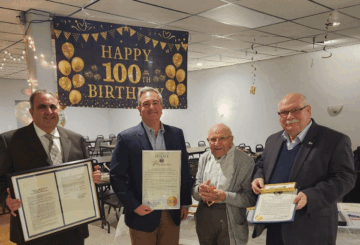By Chuck Wiser, I write the words to share what my eyes see and my heart feels
Pictured is the “Rainbow version of Table of Contents”
This past week or so has been filled with activities that challenge me from a memory standpoint and reward me with learning more about that which I have an intuition but not complete knowledge. I’m not sure, beyond my love for dictionaries, but what I would have done before Google and other similar “knowledge” search engines. Cautionary word: Google, or its sources is not an absolute authority, nor “false information” free but a great place to start. If its reference is not taken from Merriam Webster or its new upstart version Wikipedia, depending on its use, I typically try to validate it by using a back-up source. The following topic explains my need and use of research sources.
The Grace United Church in Wellsville, as part of its GraceFull Arts series is conducting a GraceFull Lines Photography show, which will feature the photo entries in the David A Howe Library Exhibition Room from March 25th until April 18th. The premise is to use a photograph taken, the result of which would illustrate a favorite saying or quote that inspires you. I commented to a fellow parishioner that I typically try to “paint a picture” with my poems or words, and she thought that was “beautiful.” Given that motivation I began to put together a combined photograph, but of another photograph, combined with one of my personal favorite poems. Knowing this was not in strict compliance with the “spirit of” the photography exhibition, especially if there was going to be contest judging, and/or prizes, I previewed my photo to one of the organizers. She offered suggestions for a remedy consisting of taking a “live happening” photograph with my wife. and I am now in the negotiation stages of accomplishing that, hoping that this second participant needed to help fulfill that objective can be convinced to participate.
Since the non-compliant offering will not be used, but is completed, I will add it at the end of this week’s Wrambling if I can produce a copy which will not surpass our publishing capacity.
Further to this written theme, in my search for useable or pertinent quotes, and/or their histories I looked at several. The one I had chosen for my GraceFull Arts Photo was: With This Ring I Thee Wed. I had written a poem using that theme, which is in my published book of poetry, and for illustration purposes, had been adorned with a colorful border, courtesy of my daughter Kristin. My research of the origin revealed a little more than I was looking for. These comments are stolen from an article titled All Things Medieval at the following link. https://ruthjohnston.com/AllThingsMedieval/?p=60. “It is believed that the exchanging of rings originated from ancient Egypt, when braided rings of hemp or reeds were given to symbolize perpetual love between the spouses.” The phrase itself is chronicled by an article describing the origin of the phrase which goes back to Medieval England (also the name of the publication) The ceremony starts with the wedding vows: “I take thee (name) to my wedded wife/husband, to have and to hold from this day forward, for better and for worse, and concludes with the phrase; “with this ring I thee wed.”
The selection of the final placement of the ring finger, after the blessing of the ring by the celebrant official, is also described as follows…”Then the groom slipped the ring loosely onto her thumb, saying, “In the name of the Father,” and then he moved it to her index finger, “and the Son,” then the ring moved to her second finger, “and the Holy Ghost,” and finally he moved it to her third finger to say, “with this ring I thee wed.”
I hadn’t planned on going that far with a description of the process in that much detail, but it was so interesting to me, and as I aim to do, I share with you.
My other Photography show entrants will feature the phrases that follow. According to Wikipedia the phrase…”In like a lion out like a lamb” comes from the 18th century and is an “old Pennsylvania “saw”.” The other phrase will be “April flowers bring May showers” which comes from the 1500’s as noted in several sources as: The saying can be traced back to England from the 1500s poet Thomas Tusser. Back then, he wrote “Sweet April showers do spring May Flowers”. In England, the month of April brings huge weather swings with the jet stream lifting northward at the start of spring.
Ok, now it’s time to Wramble on. The embedded “Table of Contents pic shown above may be a little ambitious as “I’ve only just begun” paraphrasing a song lyric from back in my day.
I had a road trip experience that still has me in wonderment, but also with warm feelings. Returning from an Orthopaedic doctor’s appointment at URMC Highland Hospital in Rochester last week, a large white vehicle approached from behind and which pulled into the passing lane and drew beside me. The youthful front seat passenger started smiling and waving vigorously, as did the same side passenger in the next seat back, and others in the vehicle. It appeared that the two passenger side riders knew me, but for the life of me I did not recognize them, or have any idea who they were as it was a Wellsville Central School van/bus. My license plate (photo shown), which the Wellsville Sun owner/editor has used as an illustration, by-passing a photo of my ugly self, often draws gestures pointing down toward the front and a “thumbs up” which I take as an approval, or, as overheard comments such as shared between NYSP traffic check officers, as mentioned in a former column.

In last week’s Wramblings I mentioned that a couple of topics popped into, and right back out of, my mind, surely to pop back in as soon as we went to press. That was one of the topics, and indeed it did pop right back in. “pop-tort” as opposed to retort.
Grammar Grins, Groans and Giggles:
There are certain words that alone or in combination sometimes make me stop and think before I use it/them. One of my more difficult meanings or word searches turned up a term that I should have intuitively guessed. Intuition, however, is either there or it isn’t. The long and short of it (there’s another phrase that popped into my head) is that the term that I was looking for was simply a “compound word”. Anyway, is a compound of “any and way,” such that the combination has a different, albeit sometimes related, meaning. “Anyway” could mean “despite or instead of,” and “Any Way” would be a descriptor of various “ways.”
Anymore/any more; Ahold/a hold; Alright/all right; Anyone/any one; Everything/every thing; Altogether/all together; Overtime/over time, Maybe/may be; Sometime/some time: are all examples that range from frequently used to seldom used. As an interesting related side note, Auto-defect checking does not recognize many of those compound words highlighting the two words suggesting the single word. You would think that the authors of that computer phenomenon or feature would be as smart as you and I now are, having learned about those words. 😉🤐
I used to like PayPal, but recent policy changes are turning me off using that heretofore useful on-line payment option. You “used-to-could” as Larry the Cable Guy would say, be able to make a purchase and PayPal would not take funds from the designated account until after the item shipped. One advantage of that would be the ability to change your mind about the purchase “in the light of day” (another phrase). Now, PayPal draws the funds from your designated source almost immediately making it much more difficult to make changes, or to cancel the order. If you contact PayPal they direct you to contact the seller. “Right! (another comedian used to say).
I just realized how many sets of ( )’s and quote marks, AKA “inverted commas,” I used. I think my new word for the week will be “Invertedcommaparenthology.”
If you groaned, or just shook your head, you can join the legions of former students that endured that over my 24 years of teaching my non-English major students at Alfred State College. I will say this about that. When I happen to have the honor of a conversation or correspondence with a former student, undoubtedly, they will mention my “made up” words.
I leave you with the admonition or, to “put the pressure on you”, as a teaching colleague used to say, “to have a great weekend.”








